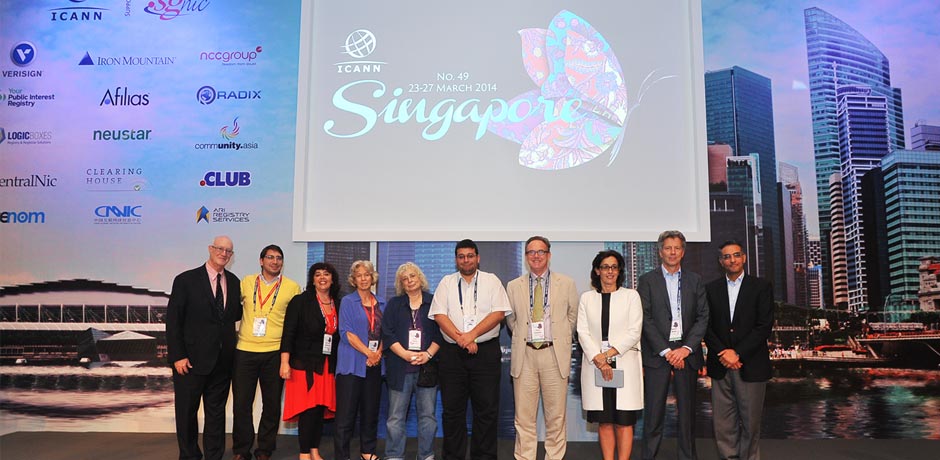We have finally had a chance to review the transcript of the Public Forum with the ICANN Board held on March 27th in Singapore. ICA generally takes advantage of those opportunities for interaction to acquaint the Board with matters of concern to the domain investment community.
Two issues were addressed in our Singapore statement. The first was the attempt by UN-affiliated International Governmental Organizations (IGOs), as well as some International Non-Governmental Organizations (INGOs), to block their acronyms from being available at any new gTLD – a position that could eventually threaten some valuable domains at incumbent gTLDs. Our remarks reiterated support for the unanimously adopted GNSO Council resolution on this matter. Subsequent to the Singapore meeting we filed a comment letter that told ICANN it was time to respond to these unreasonable demands with a firm and responding “No”.
The second matter was cybersquatting at new gTLDs. From its inception ICA’s Code of Conduct has taken a strong stand against intentional trademark infringement. Several domain industry bloggers have noted clearly infringing activity going on at new gTLDs. And one law firm reported in February in regard to the just-launched .Bike gTLD:
[O]f the 20 brands selected for the study, as of February 10, 2014, all 20 were registered as domain names in .BIKE. However, only four of the 20 brands have clearly been registered by the actual brand owner. According to WHOIS data, another three are being held by the registry Donuts, and it is unclear for what purpose—whether as a premium name, as part of a blocking program, or otherwise. The other 13 are all being held by third parties who seemingly have no relation to the brand owner, quite possibly cybersquatters. While the sample size of this study is small and not necessarily statistically significant, it supports the supposition that most bicycle brands either were not aware of the .BIKE launch or did not take protective steps to prevent potential cybersquatting once the launch occurred.
Just after that study was issued I received an unsolicited e-mail from an individual in India offering many new gTLD domains for sale – including formula.bike, a name associated with an Italian manufacturer of specialty racing bike parts.
We don’t yet know the extent of intentional cybersquatting at new gTLDs and whether it is significant, and not every generic word registered at a particular new gTLD is going to meet the dual UDRP/URS standard of bad faith registration and use. We also don’t know if any of these cybersquatted domains is receiving any substantial traffic and thereby generating any type of significant income to the registrant (doubtful); or whether any are being for bad purposes beyond infringement.
What we do know is that such activities are not just stupid because they invite legal action, but that they are wrong. And we know that when UDRP reform is initiated in 2015 certain trademark interests may point to these activities as evidence that allegedly supports changes that would reduce the due process rights of legitimate domain registrants. Ditto for proposed changes to national laws such as the U.S. Anticybersquatting Consumer Protection Act (ACPA).
That’s why it’s important for ICA to get on the record reiterating our condemnation of such infringement and asking what ICANN is doing to monitor and analyze the situation. When we engage in that UDRP review discussion we want no questions raised about the commitment of ICA and its members to respecting trademark law — so that we can better press the point that domain rights and trademark rights should be equitably balanced.
The transcript follows–
http://singapore49.icann.org/en/schedule/thu-public-forum/transcript-public-forum-27mar14-en.pdf
BILL GRAHAM: Thank you. Next. Mr. Corwin
PHILIP CORWIN: Good afternoon. Philip Corwin speaking in my capacity as counsel to the domain name investors and developers of the Internet Commerce Association and briefly addressing two issues related to the new TLD program. The first is the ongoing discussion of the protections for acronyms of IGOs and INGOs at new TLDs. ICA is strongly in support of the resolution adopted unanimously by the GNSO council on this issue. We think it’s important at a time when we’re ‐‐ a multistakeholder model is being watched by the world — for that resolution to be put into effect and also to address concerns about the role of governments in a post‐NTIA environment. I would note that many short acronyms are extremely valuable domain names. They can be used in a totally noninfringing fashion and that it’s extremely critical to my members that there being a meaningful appeals process which is both perceived and actually provides a fair treatment of both parties.
Turning to the second issue, it’s too early to make a judgment but we have noticed from various analyses and reports that there is unfortunately some intentional cybersquatting going on at new TLDs. ICAs Code of Conduct since its inception has strongly condemned that. We’re monitoring this situation. We’re also monitoring the use of the URS and so far it does seem to be being used as a narrow supplement to the UDRP, and we certainly hope that ICANN staff is giving full attention to this issue because it’s important to the perception of the program and setting up the environment for the discussion of UDRP reform which will start next year. Thank you very much.
BILL GRAHAM: Thank you. We’ll have a brief presentation on the NGO/INGO names at the beginning of the next session.

